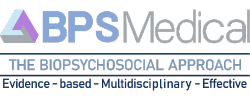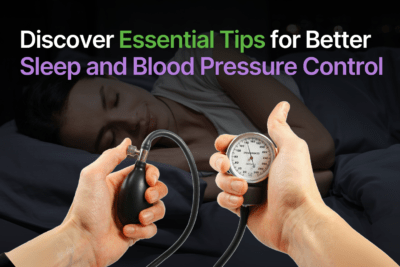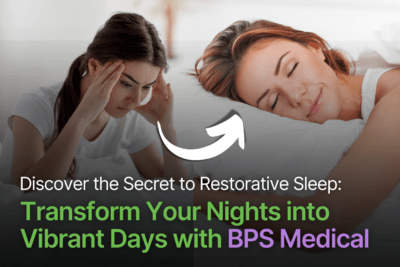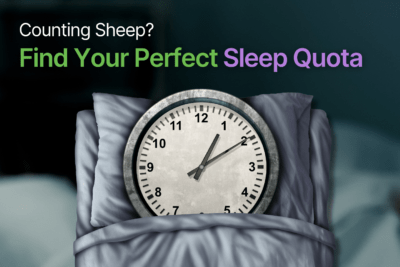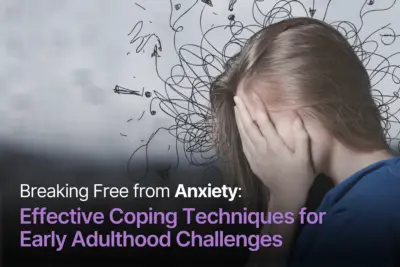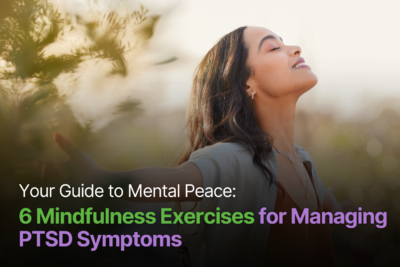Comprehensive Guide to Understanding Depression Treatment
BPS Medical – Leading the Way in Depression Treatment in Fort Lauderdale, FL
Depression is a serious mental health condition affecting millions globally. According to the World Health Organization (WHO), over 280 million people of all ages suffer from depression worldwide. Unlike temporary sadness, depression is a persistent mental health disorder that impacts an individual’s physical, emotional, and social well-being. But there’s hope—depression is highly treatable. At BPS Medical, we use cutting-edge treatment approaches grounded in the biopsychosocial (BPS) method, treating the whole person, not just the symptoms.
What is Depression?
Depression is a mood disorder characterized by persistent sadness, hopelessness, and a loss of interest in daily activities. While the occasional feeling of sadness is part of the human experience, depression is more than just feeling “down.” Symptoms can last for weeks, months, or even years if untreated. These may include:
- Persistent low mood or irritability
- Loss of interest in activities once enjoyed
- Sleep disturbances (insomnia or excessive sleeping)
- Changes in appetite or weight
- Fatigue and lack of energy
- Difficulty concentrating
- Feelings of guilt or worthlessness
- Thoughts of death or suicide
Several types of depression exist, such as Major Depressive Disorder (MDD), Persistent Depressive Disorder (PDD), and Bipolar Depression. Identifying the right type of depression is crucial for tailoring effective treatment—something we specialize in at BPS Medical.
There are several types of depression, including:
- Major Depressive Disorder (MDD): Characterized by at least two weeks of pervasive low mood and loss of interest in most activities.
- Persistent Depressive Disorder (PDD): A chronic form of depression lasting for at least two years.
- Bipolar Depression: Associated with Bipolar Disorder, where depressive episodes alternate with periods of mania.
- Seasonal Affective Disorder (SAD): Depression that occurs during certain seasons, usually in winter when there is less sunlight.
- Postpartum Depression: Depression that affects women after childbirth.
Revolutionary Approaches to Depression Treatment in Fort Lauderdale, FL
Statistics on Depression
Depression is one of the leading causes of disability worldwide. Here are some key statistics that highlight the scope of the problem:
- According to the National Institute of Mental Health (NIMH), in the United States alone, an estimated 21 million adults experienced at least one major depressive episode in 2020, representing 8.4% of the U.S. adult population.
- Women are twice as likely to suffer from depression compared to men. About 10-25% of women and 5-12% of men will experience major depressive disorder during their lifetimes, according to the American Psychiatric Association.
- Suicide, a tragic consequence of untreated depression, is responsible for more than 700,000 deaths globally each year, according to WHO.
Given these numbers, it’s clear that effective depression treatment is crucial to improving public health.
Depression Treatment Strategies: How to Overcome Your Struggles
Treatment for Depression Options
Treating depression typically involves a combination of medical, psychological, and lifestyle interventions. The right treatment plan depends on the individual’s specific symptoms, the severity of the depression, and other factors such as medical history and personal preferences. Below are the most common and evidence-based treatments for depression.
1. Antidepressant Medications
Antidepressants are often the first line of treatment for moderate to severe depression. These medications work by balancing chemicals in the brain known as neurotransmitters, such as serotonin, dopamine, and norepinephrine, which regulate mood.
There are several classes of antidepressants:
Selective Serotonin Reuptake Inhibitors (SSRIs): These are the most commonly prescribed antidepressants, including medications like fluoxetine (Prozac), sertraline (Zoloft), and citalopram (Celexa). SSRIs work by increasing the amount of serotonin in the brain.
Serotonin-Norepinephrine Reuptake Inhibitors (SNRIs): These medications, such as venlafaxine (Effexor) and duloxetine (Cymbalta), increase both serotonin and norepinephrine levels, which can be effective for treating depression and anxiety.
Tricyclic Antidepressants (TCAs): Older antidepressants like amitriptyline and nortriptyline. Though effective, they are less commonly prescribed due to their side effects.
Monoamine Oxidase Inhibitors (MAOIs): One of the earliest types of antidepressants, including phenelzine (Nardil). They are typically used when other antidepressants haven’t worked because they can interact with certain foods and medications.
Atypical Antidepressants: These include bupropion (Wellbutrin), which works differently from SSRIs and SNRIs, and is often used in cases of major depressive disorder and to aid smoking cessation.
Efficacy of Antidepressants: Antidepressants are generally effective for 50-70% of people with depression. Research published in The Lancet found that SSRIs, particularly fluoxetine, were effective in treating major depressive disorder. However, it often takes 4 to 6 weeks for individuals to experience the full effects of the medication.
2. Psychotherapy (Talk Therapy)
Psychotherapy, also known as talk therapy, is a core component of depression treatment. It helps individuals understand their thoughts, emotions, and behaviors, and equips them with strategies to manage their depression.
Cognitive Behavioral Therapy (CBT): One of the most effective forms of psychotherapy for depression, CBT focuses on identifying and changing negative thought patterns and behaviors. According to the American Psychological Association (APA), 50-75% of people who undergo CBT experience significant improvements in their depression symptoms.
Interpersonal Therapy (IPT): This therapy helps individuals improve their relationships and social functioning, which can contribute to mood improvements. IPT is particularly effective in treating depression linked to major life events, like the loss of a loved one.
Dialectical Behavior Therapy (DBT): Originally developed for borderline personality disorder, DBT has shown effectiveness in treating depression, especially in people with suicidal thoughts. It combines CBT with mindfulness techniques.
Psychodynamic Therapy: This long-term therapy delves into an individual’s past and unconscious mind to uncover unresolved issues that may be contributing to their depression.
3. Lifestyle Changes and Holistic Approaches
Lifestyle changes play a significant role in managing and treating depression. Evidence-based lifestyle interventions can complement traditional therapies and contribute to long-term mental health.
Exercise: Physical activity has been proven to have antidepressant effects. A study published in The American Journal of Psychiatry found that people who engage in regular exercise are less likely to experience depression. Exercise boosts the production of endorphins, serotonin, and other brain chemicals that enhance mood.
Nutrition: Diet plays a crucial role in mental health. A 2017 study published in BMC Medicine showed that a Mediterranean diet, rich in fruits, vegetables, and healthy fats, was associated with lower rates of depression. Omega-3 fatty acids found in fish are particularly beneficial for brain health.
Mindfulness and Meditation: Mindfulness-based cognitive therapy (MBCT) is effective in preventing depression relapse. MBCT combines mindfulness practices like meditation with cognitive therapy to help individuals become more aware of their negative thought patterns.
Sleep: Depression is often accompanied by sleep disturbances. Improving sleep hygiene can significantly reduce depressive symptoms. Cognitive behavioral therapy for insomnia (CBT-I) is a specialized form of CBT that addresses sleep problems.
4. Neurofeedback Therapy
Neurofeedback therapy is an emerging treatment that focuses on retraining the brain’s electrical patterns. It uses real-time brainwave monitoring to help individuals regulate their brain activity, which can alleviate depression symptoms. BPS Medical, for instance, offers neurofeedback therapy as part of its comprehensive depression treatment program.
5. Electroconvulsive Therapy (ECT)
ECT is a medical treatment that involves sending small electrical currents through the brain to trigger a brief seizure. While this may sound alarming, ECT is considered a highly effective treatment for severe depression, especially in cases where medications and psychotherapy have failed. According to the American Psychiatric Association, up to 80% of individuals with treatment-resistant depression respond to ECT.
6. Transcranial Magnetic Stimulation (TMS)
TMS is a non-invasive procedure that uses magnetic fields to stimulate nerve cells in the brain, particularly the prefrontal cortex, which is involved in mood regulation. The FDA has approved TMS for treatment-resistant depression. Studies show that it can significantly improve symptoms in individuals who haven’t responded to medications or psychotherapy.
7. Ketamine Therapy
Ketamine, traditionally an anesthetic, has gained attention for its rapid antidepressant effects. Low-dose ketamine infusions are used to treat severe depression, especially in individuals who are suicidal or have not responded to other treatments. Research published in the American Journal of Psychiatry found that ketamine can produce significant reductions in depression symptoms within hours of administration.
How Can I Stop Feeling Depressed?
Depression can feel overwhelming, but it’s important to know that recovery is possible with the right support. Here are key strategies to help stop or manage depressive symptoms:
Seek Professional Help: Depression isn’t something you need to face alone. Reach out to mental health professionals for diagnosis and treatment.
Stick to a Treatment Plan: Whether it involves medications, psychotherapy, or lifestyle changes, consistency is crucial. At BPS Medical, we ensure patients have access to all necessary treatments under one roof, from medication management to holistic therapies like mindfulness training and exercise recommendations.
Improve Sleep and Nutrition: Depression is often linked to poor sleep and nutrition. Studies have shown that improving sleep hygiene and following a nutrient-rich diet (such as the Mediterranean diet) can reduce symptoms.
Exercise: Physical activity boosts endorphins and other neurotransmitters that elevate mood. Even walking 30 minutes a day can make a big difference.
BPS Medical Approach: We provide customized wellness plans for each patient that incorporate exercise regimens, nutritional counseling, and sleep improvement techniques to enhance mental health.
How to Fix Depression and Anxiety?
Depression and anxiety frequently occur together, with nearly 50% of individuals diagnosed with depression also suffering from an anxiety disorder. Addressing both conditions simultaneously requires a comprehensive treatment approach.
Integrated Care: At BPS Medical, we combine psychiatric care, psychological therapy, and neurofeedback to treat both depression and anxiety at the source.
CBT for Anxiety and Depression: CBT is particularly effective for managing co-occurring anxiety and depression. It helps individuals develop coping strategies for both disorders.
Mindfulness and Relaxation Techniques: These methods help calm the mind, reducing the overwhelming feelings of anxiety and depression.
Medications: SSRIs and SNRIs are commonly prescribed to treat both depression and anxiety, offering a dual benefit for those struggling with both.
How to Help Someone Depressed?
If you know someone who is depressed, offering support can be life-changing. Here are ways to help:
Encourage Professional Help: Urge them to seek treatment from mental health professionals. At BPS Medical, we make it easy for patients to get appointments quickly and start treatment as soon as possible.
Listen Without Judgment: Sometimes, being a good listener is enough to help someone feel understood and supported.
Offer Practical Help: Small gestures like helping with daily tasks, cooking meals, or driving them to therapy appointments can alleviate some of their burdens.
Stay Connected: Social isolation can worsen depression. Stay in touch, even if it’s through brief messages, to remind them they’re not alone.
Managing Depression: Long-term Outlook
Managing depression is an ongoing process that often requires a combination of treatments. It’s important to remember that relapses can occur, but with a solid treatment plan in place, individuals can minimize the frequency and severity of symptoms.
At BPS Medical, we use a biopsychosocial approach to create long-term treatment plans that consider the physical, emotional, and social aspects of depression. This comprehensive care ensures that every patient receives the personalized treatment they need to live a fulfilling life, free from the debilitating effects of depression.
Depression and Co-Occurring Disorders
Depression frequently co-occurs with other mental health disorders such as anxiety, substance use disorders, and PTSD. In such cases, treatment must address all underlying conditions. Integrated treatment approaches, like those used by BPS Medical, consider the full spectrum of a patient’s mental health, using a holistic, biopsychosocial method to treat not only depression but other contributing factors.
Innovative Depression Treatment Options: Beyond Traditional Therapies
Depression is a complex mental health condition, but it is highly treatable. With the right combination of antidepressants, psychotherapy, lifestyle changes, and emerging treatments like neurofeedback and TMS, individuals can regain control over their mental health and lead fulfilling lives.
If you or someone you love is struggling with depression, don’t wait to seek help. BPS Medical is here to support you on the road to recovery, offering compassionate, personalized care that addresses the root causes of depression and provides lasting relief.
Contact BPS Medical today to schedule an appointment and begin your journey to a happier, healthier life
Sources:
- World Health Organization (WHO): “Depression” https://www.who.int/news-room/fact-sheets/detail/depression.
- National Institute of Mental Health (NIMH): “Major Depression” https://www.nimh.nih.gov/health/statistics/major-depression.
- American Psychiatric Association: “What is Depression?” https://www.psychiatry.org/patients-families/depression/what-is-depression.
- The Lancet: “Antidepressant Efficacy Study” https://www.thelancet.com/.
- BMC Medicine: “Mediterranean Diet and Depression” https://bmcmedicine.biomedcentral.com/.
- American Journal of Psychiatry: “Exercise and Depression” https://ajp.psychiatryonline.org/.
